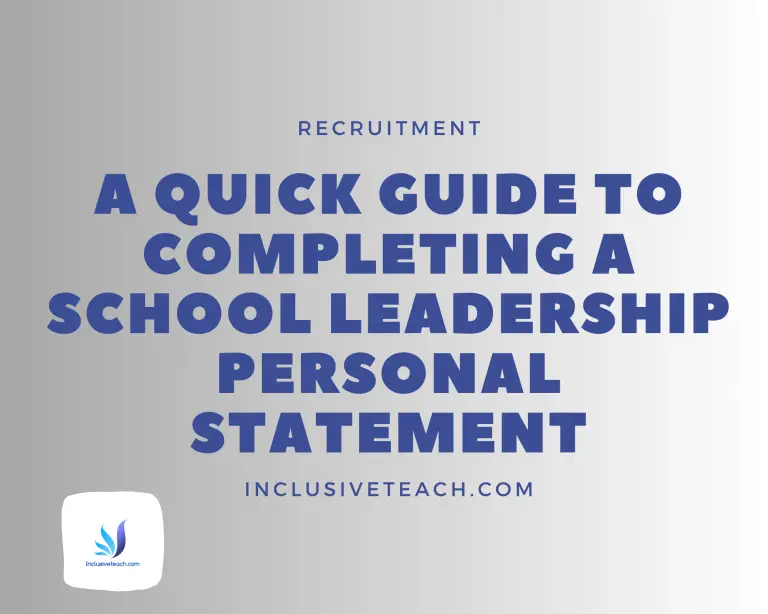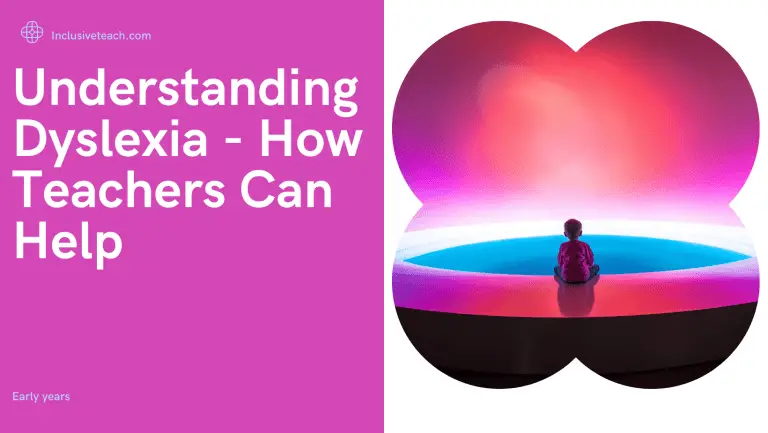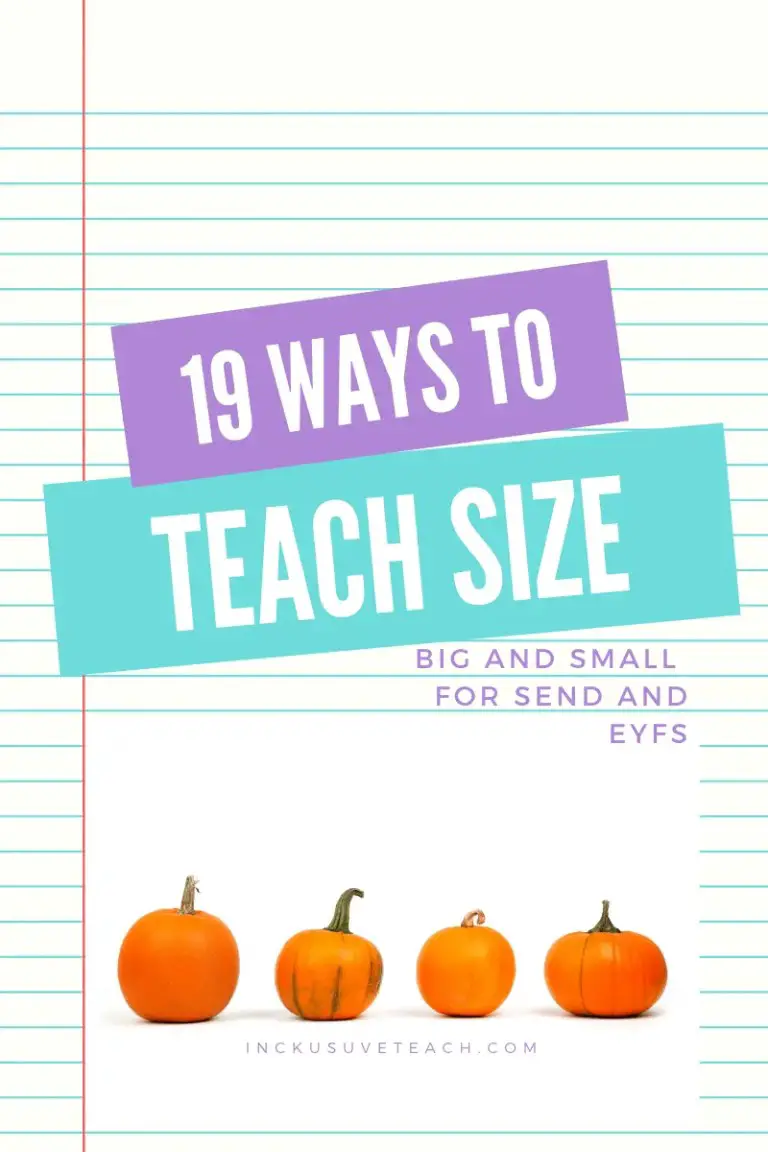The Power of Retrieval Practice for SEN Pupils
What is Retrieval Practice?
Retrieval practice, or recalling what you have learned, can be a powerful learning strategy for students with special educational needs. Retrieval practice is a learning strategy in which a person actively attempts to recall information that they have previously studied from memory. This is effective because it helps to strengthen the connections between the information in a person’s memory. This makes it easier for them to recall the information later on. This blog post provides practical tips for teachers to implement retrieval practice in the SEN classroom.
Why Is Retrieval Practice Important?
The process of retrieval strengthens neural connections and helps students retain information for longer periods. Research has shown that retrieval practice may be beneficial for students with special educational needs (SEN), as it can help them overcome memory and learning challenges. It is not conclusive however. Rosenshine’s principles of instruction emphasise the importance of recall of prior learning in promoting learning and long-term retention.
Pupils with SEN, especially those with difficulties in cognition and learning, often have a smaller working memory compared to their peers. This can make it more challenging for them to remember and recall information. For some this means they will get frustrated or reluctant to work. For many their confidence and self-esteem needs to be increased. They may also have fewer things stored in their long-term memory, which can make it more challenging for them to make links when they learn something new.
What the Evidence says about Retrieval Practice and SEN
I could only find a few studies focussed on SEN and retrieval practice. In summary these found that immediate retrieval boosts phonetic accuracy in the short term. Spaced retrieval promotes stability and long-term retention. Once the children can recall a word in the short term, retention over longer stretches of time is less impaired.
- There is some evidence that retrieval practice is not effective with children with limited working memory (Zheng 2023)
- Including repeated retrieval trials during learning improves retention.
- Spacing retrieval trials makes retention effortful but usually successful.
- Spacing was found to enhance learning and retention in both immediate and delayed recall testing for children with DLD and typical language development.
- Immediate retrieval condition, although providing more production practice and encoding opportunities, did not result in better recall compared to spaced retrieval condition.
- Feedback provided after retrieval attempts helped improve learning.
- Children benefited from feedback especially when retrieval attempts were unsuccessful or when they had low confidence in their responses.
- Effortful retrieval involved in spaced retrieval helps preserve the enhanced phonetic details of the words.
- Immediate retrieval trials included in the spaced retrieval condition improved success on subsequent spaced retrieval trials.
- Opportunities for effortful retrieval can help prevent deterioration in phonetic accuracy over time for children with DLD.
- Retrieval practice, especially with repeated retrieval, enhances word learning and retention in children with DLD (Leonard et al., 2020; Haebig et al., 2021).
- Repeated retrieval is more effective than additional study for improving word learning outcomes.
- Repeated spaced retrieval can significantly improve word learning in children with DLD (Leonard et al., 2019b).
Effective Retrieval Practice Activities for the SEN Classroom
Flashcards – This should come as no surprise but visuals such as flashcards can be an effective tool for teaching key terms, facts, or concepts. Teachers can create flashcards for various subjects and use them to prompt students to recall important information.
Worksheets and Workbooks – Carefully designed worksheets, workbooks, and even fill-in-the-blank handouts can be used as tools. These resources encourage students to retrieve information from memory and apply it in different contexts.
Oral Questioning – Oral questioning techniques, such as Q&A sessions, quizzes, and games, can help pupils practice recalling information verbally. These activities promote active participation and engagement while reinforcing memory recall.
Mindmaps – For many the process of answering questions verbally will present a significant challenge. Processing time, recall, etc can all be barriers. Mindmaps, how-to guides etc can present a viable alternative
Practice Problems – Repeated Practice problems that slowly build in complexity to allow links to be made between concepts can be effective. They help children apply their knowledge and strengthen their memory through retrieval practice. These activities encourage children to think critically and problem-solve using previously learned information.
10 Top Tips on using Retrieval Practice to Improve Learning
Retrieval practice can be used in various ways to enhance learning and retention of classroom material. Here are 10 top tips on how to use retrieval practice to improve learning:
- Use retrieval practice as a learning strategy, not an assessment tool. Retrieval practice is most effective when it is used to enhance learning, not to measure it. Therefore, retrieval practice should be low-stakes, frequent, and varied, and not graded or penalised.
- Provide feedback after retrieval practice. Feedback helps correct errors, reinforce correct responses, and fill in gaps in knowledge. Feedback can be provided by the teacher, peers, or self-checking methods such as answer keys or online quizzes.
- Space out retrieval practice over time. Retrieval practice is more beneficial when it is spaced out over time, rather than crammed in one session. Spacing out retrieval practice helps prevent forgetting and promotes long-term retention.
- Use different types of retrieval practice. Retrieval practice can take many forms, such as flashcards, quizzes, summaries, concept maps, graphic organizers, writing prompts, songs, etc. Using different types of retrieval practice helps students recall information from different perspectives and contexts, and enhances transfer of learning.
- Combine retrieval practice with other effective learning strategies. Retrieval practice can be combined with other evidence-based learning strategies, such as elaboration, interleaving, dual coding, and metacognition. These strategies can help students deepen their understanding, make connections, use multiple representations, and monitor their own learning.
- Make retrieval practice challenging but not too difficult. Retrieval practice should be challenging enough to require effortful recall, but not too difficult that it causes frustration or failure. The level of difficulty should match the students’ prior knowledge and the complexity of the material.
- Use retrieval practice before introducing new material. Retrieval practice can be used to activate prior knowledge and prepare students for new learning. For example, before starting a new unit or lesson, students can retrieve what they already know about the topic or related topics.
- Use retrieval practice to review material. Retrieval practice can be used to review material that has been previously learned and consolidate it in memory. For example, at the end of a unit or lesson, students can retrieve the main ideas and key facts that they have learned.
- Use retrieval practice to apply material. Retrieval practice can be used to apply material to new situations and problems. For example, students can use retrieval practice to solve novel questions, explain real-world examples, or generate creative products using the material they have learned.
- Encourage students to use retrieval practice on their own. Retrieval practice can be used by students independently as a self-regulated learning strategy. Teachers can help students use retrieval practice on their own by providing them with guidance, resources, and incentives. For example, teachers can teach students how and why retrieval practice works, provide them with tools and materials for retrieval practice (such as flashcards or online platforms), and reward them for using retrieval practice regularly.
I hope these tips are helpful for you. If you want to learn more about retrieval practice and how to use it effectively in your classroom, you can check out these resources:
- Retrieval Practice Guide: A comprehensive guide on how to use retrieval practice to improve learning by cognitive scientists from Washington University in St. Louis.
- Ten Ways to Use Retrieval Practice in the Classroom: A blog post by Larry Ferlazzo that features practical suggestions from educators on how to use retrieval practice in different subjects and grade levels.
- The benefits of retrieval practice in learning: A research summary by The Education Hub that explains the science behind retrieval practice and how to implement it in the classroom.
- 7 Ways to Get Retrieval Practice Right: An article by Edutopia that provides tips on how to optimize retrieval practice for maximum learning outcomes.
Make Retrieval Practice Fun and Engaging for SEN Students
Interactive Games – Games like Kahoot! can make retrieval practice fun, competitive, and engaging for students. These platforms offer various game formats and can be customised to suit the needs of SEN students. This can help motivate children to undertake non-preferred tasks.
Keep Sessions Short – Shorter retrieval practice sessions can improve focus and reduce cognitive overload.

Common Challenges of Using Retrieval Practice in SEN
- Motivating pupils: Some children may lack intrinsic motivation or struggle to engage with retrieval activities. Teachers need to find ways to make it fun and rewarding.
- Cognitive overload: Lessons that are too long, challenging or intense can lead to cognitive overload. Especially if a lot of different information is delivered or the session is fast paced. Short, frequent retrieval sessions are better.
- Difficulty retaining and recalling: Some SEN students may have specific learning disabilities that make retention and recall more challenging. Extra practice, pre and re-teaching may be needed.
- Lack of resources: Not all schools have access to technology like Kahoot! or Quizlet for interactive retrieval games. Low-tech options like flashcards, worksheets and oral questioning can also be effective.
- Consistency: Implementing any new teaching practice or strategy with consistency and fidelity can be challenging. Teachers must commit to ongoing and long-term use of retrieval practice for maximum benefit.
- Time requirements: Preparing retrieval practice activities and providing the necessary feedback and re-teaching requires additional time.
- Training needs: Some teachers may need additional training or professional development to use retrieval strategies effectively, particularly for SEN students.
References
Agarwal, Pooja & Finley, Jason & Rose, Nathan & Roediger, Henry. (2016). Benefits from retrieval practice are greater for students with lower working memory capacity. Memory (Hove, England). 25. 1-8. Free Access
Haebig E., Leonard L., Deevy P., Schumaker J., Karpicke J., Weber C. (2021). The neural underpinnings of processing newly taught semantic information: The role of retrieval practice. Journal of Speech, Language, and Hearing Research, 64(8), 3195–3211. Free Access
Leonard L., Deevy P., Karpicke J., Christ S., Weber C., Kueser J. (2020). After initial retrieval practice, more retrieval produces better retention than more study in the word learning of children with developmental language disorder. Journal of Speech, Language, and Hearing Research, 63(August), 2763–2776. Free Access
Leonard, L. B., Kueser, J. B., Deevy, P., Haebig, E., Karpicke, J. D., & Weber, C. (2022). The contributions of immediate retrieval and spaced retrieval to word learning in preschoolers with developmental language disorder. Autism & Developmental Language Impairments, 7. Free Access
Zheng, Yicong & Sun, Pengyuan & Liu, Xiaonan. (2023). Retrieval practice is costly and is beneficial only when working memory capacity is abundant. NPJ science of learning. 8. 8. 10.1038/s41539-023-00159-w. Free Access







One Comment